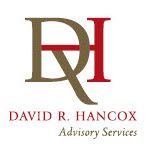Without much research, I can identify seven professional associations I follow which issue auditing standards.
These include:
Each of these professional associations has a vested interest in issuing standards and they do so claiming they serve a specialized group of auditors. The reality is, many of these standards overlap and it becomes difficult for practitioners to stay current in all areas.
In light of the globalization that is occurring in today’s world there has been some movement towards consolidating the guidance in the accounting and auditing professions.
The International Accounting Standards Board has been making progress trying to standardize guidance on accounting principles. “The goal of the IFRS Foundation and the IASB is to develop, in the public interest, a single set of high-quality, understandable, enforceable and globally accepted financial reporting standards based upon clearly articulated principles.”
The AICPA Auditing Standards Board (ASB) and the International Auditing and Assurance Standards Board (IAASB) are working on the Clarity Project, with a goal to converge U.S. GAAS and international standards on auditing (ISAs) by December 2012. Their hope is to make GAAS for nonpublic companies easier to understand and apply, as well as more consistent across international borders, while avoiding unnecessary conflict with auditing standards for public companies issued by the PCAOB.
Among the most significant changes are:
- A change to a consistent and more readable format for all standards;
- A change in the authoritative status of the traditional 10 generally accepted auditing standards;
- Changes in the wording of the auditor’s report; and
- Changes in standards for group audits.
But the problem remains that the PCAOB and the other standards issuing bodies are not on board and working towards the public interest of clarifying and simplifying auditor expectations.
We have standards overload today. The professional associations need to work together to produce a common set of auditing standards that meet the needs of the auditing profession.
